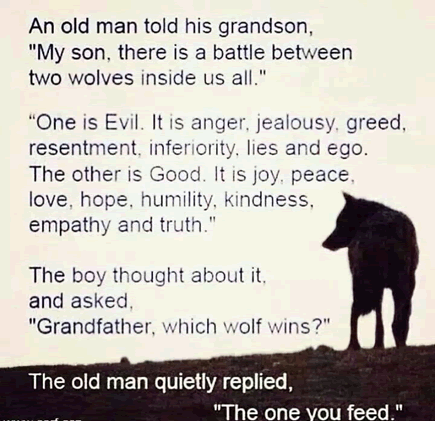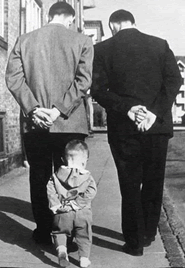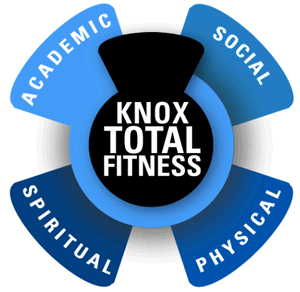 Learning to Be is one of the four pillars of education described by Jacques Delors in his report for UNESCO on Education in the 21st Century. The others are Learning to Live Together, Learning to Know and Learning to Do. The formal curriculum usually comprises the latter two with the first often left to chance. In this blog I am going to briefly focus on how schools might actively address Learning to Be, especially for those students for whom the default position may be negative.
Learning to Be is one of the four pillars of education described by Jacques Delors in his report for UNESCO on Education in the 21st Century. The others are Learning to Live Together, Learning to Know and Learning to Do. The formal curriculum usually comprises the latter two with the first often left to chance. In this blog I am going to briefly focus on how schools might actively address Learning to Be, especially for those students for whom the default position may be negative.
So what are we talking about? How do children and young people learn to be and what can schools do so that what they learn is positive, constructive and helpful for both their own lives and the health of their communities? One young woman once said to me ‘I thought kids just growed!’ and true enough they do get bigger, lose their baby teeth and experience the pangs of puberty but during all these critical years they are developing their self-concept, character, abilities, and most importantly embedding the values and perspectives that underpin how they see themselves, their hopes and dreams, the world and those around them. Increasingly young people are being pulled every which way, at the mercy of the media, advertisers and cultural pressures. The messages they receive tell them that they need to look a certain way, own certain things and conform to a set of behaviours in order to be ‘successful’. Children who do not fit in may be the targets of bullying in school. Young people are often so busy ‘doing’ they have rarely have opportunities to reflect on ‘being’ and ‘becoming’. Many end up confused and in a crisis about their identity. We ask students what they want to be when they grow up but rarely do they hear the questions ‘who do you want to become – what sort of person do you want to be?’ We give children material goods and experiences but do not find time to talk with them about gaining wisdom and living well. It is not surprising that mental health is a growing concern across the western world; it seems we are not paying sufficient attention to ‘feeding the good wolf’.
So how can education help the next generation learn ways to ‘be’ that enable young people to become their best selves, develop confidence in who they are, increase their chances of being resilient in the face of challenges and come to a clear and positive identity that enhances their self-respect, positive qualities and authentic wellbeing. Here are just a few of the possibilities.
Strengths based language: Children who hear messages about themselves from people who are significant to them about their value and qualities will try and live up to these expectations. Deficit language – ‘you are so naughty’, ‘you are just being lazy’ give individuals little to live up to. Strengths based language in a primary school setting would sound something like this: “I noticed that you included Mario in your game today. Seems like you are becoming a really friendly person. Good for you.” And in a high school: “You have made a big effort with this piece of work and it shows – you are setting high standards. How does this make you feel about yourself?”
Modelling: When children come into school effing and blinding you know that they have learnt to do this by watching and listening to those around them. When a young pupil looks after another who has fallen over you know that this care has been shown to them.
Modelling is critical.
Children watch how adults manage difficulties, they hear conversations that give them ideas about what is important in life, they observe how people treat others and they have experiences that give them understanding of qualities such as empathy, respect and fairness. Every adult in a school needs a high level of awareness of the models they are providing for learners. When a student hears an adult in a position of authority pick on or belittle someone they learn that this is the way to be a leader. When they see someone empower another this offers an alternative way of being.
.Social and emotional learning (SEL): A good SEL program provides young people with opportunities to reflect on major issues in their lives, talk with other students about alternative ways of being, tole play situations and use creative ways to think through solutions to challenges. Because young people have to come to their own decisions about who they are going to be rather than just adopting positions that please others it is rarely helpful to be didactic. SEL goals might include identifying personal values, understanding feelings and how they work in they body, learning to recognise when others attempt to manipulate emotions, learning ways to build resilience, thinking through decision making, and what gives life meaning. SEL has been widely researched, and the evidence for its efficacy in promoting positive attitudes, pro-social behaviour, confidence, resilience, engagement and academic outcomes is formidable. It does, however, need to be context related and take account of cultural differences. What might work in an individualist setting may be less successful in a collective one.
The power of the positive: Although we are often given a economic rationale for happiness – the more you have the happier you will be! Positive psychology challenges this and has provided a raft of evidence on authentic wellbeing. This includes the value of kindness, collaboration, gratitude, equality and optimism. It also shows that sadness is an important response to certain situations and that anger can be valid when used constructively and humanely for social justice.
Service Learning: Many young people learn a different way to be when they find themselves working in the service of others and reflecting on what they are learning. Because of the benefits in helping students develop a positive sense of self,
some schools now incorporate service learning as part of the curriculum, and it forms part of the International Baccalaureate.
In many ways our world is fostering selfishness, greed, narcissism, inequality and blame. If we want a future that takes care of the wellbeing of all, education must have a role in countering some of this – so that our young people learn what brings authentic wellbeing and grow to become the best they can be – not just get the best test results.



